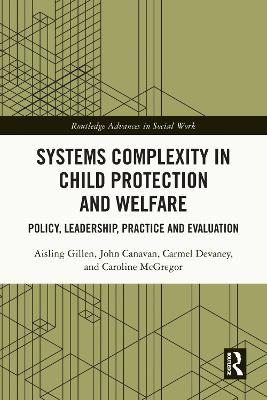Routledge Advances in Social Work
1 total work
Systems Complexity in Child Protection and Welfare
by Aisling Gillen, John Canavan, Carmel Devaney, and Caroline McGregor
This book examines systems complexity theory and specifically, system and dynamic characteristics of complexity, with a key focus on self/organisation/emergence/adaptation; path-dependence; and bifurcation.
Exploring systems complexity at the heart of child protection and welfare policymaking, leadership, practice, and evaluation and implications for policymakers, leaders, practitioners and evaluators in managing its impact, it proposes a systems complexity evaluation framework to assist identification, accommodation and decision-making in child protection and welfare practice, services, and systems. Using national case studies, practice, and research examples, it illustrates how adopting a complexity focus to Child Protection Work in any jurisdiction can augment decision-making and critical analysis acumen at all levels in practice, services, and systems.
This book will be of interest to all scholars and students of social work, child protection, family support, education, nursing and criminology.
